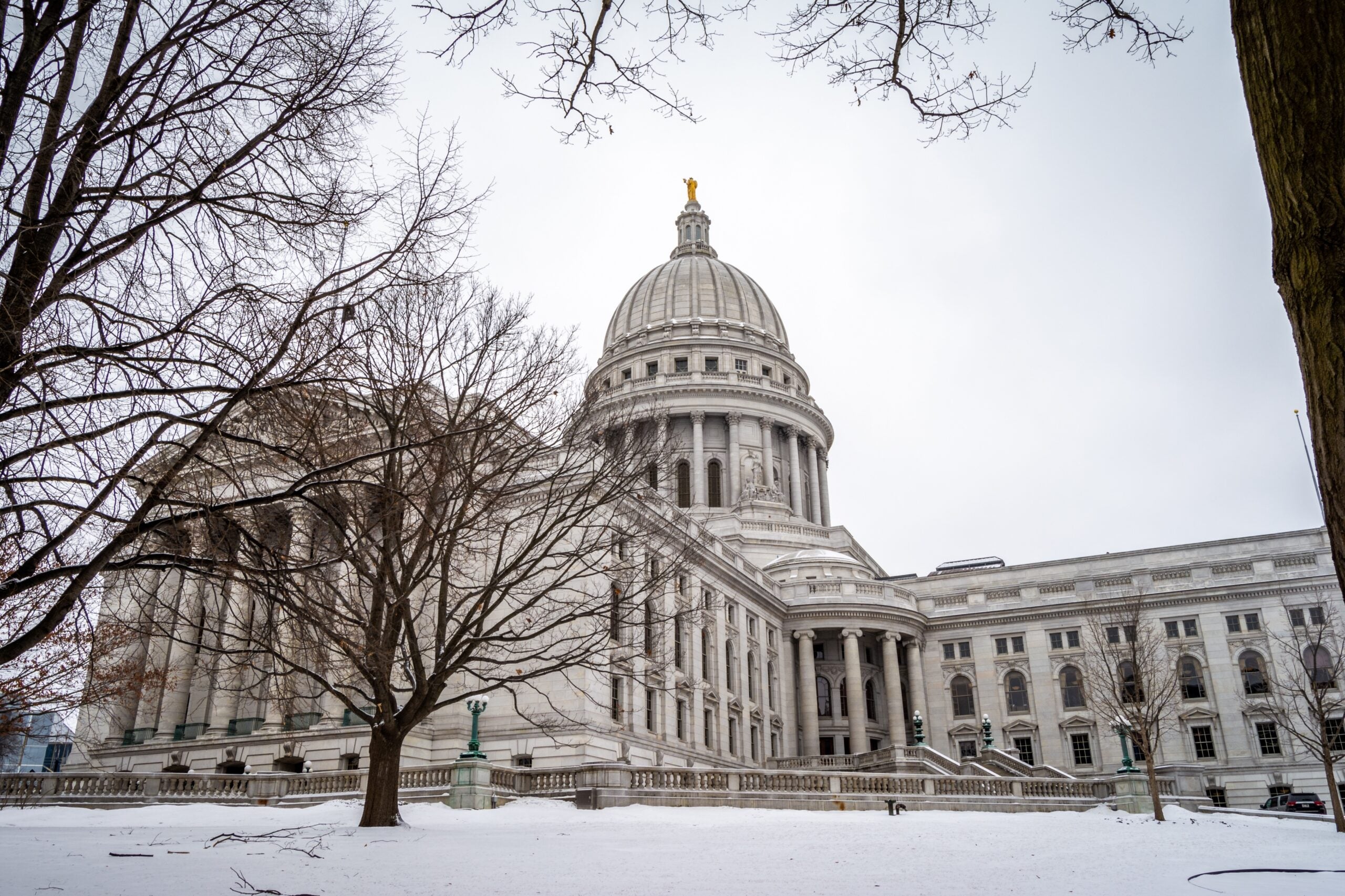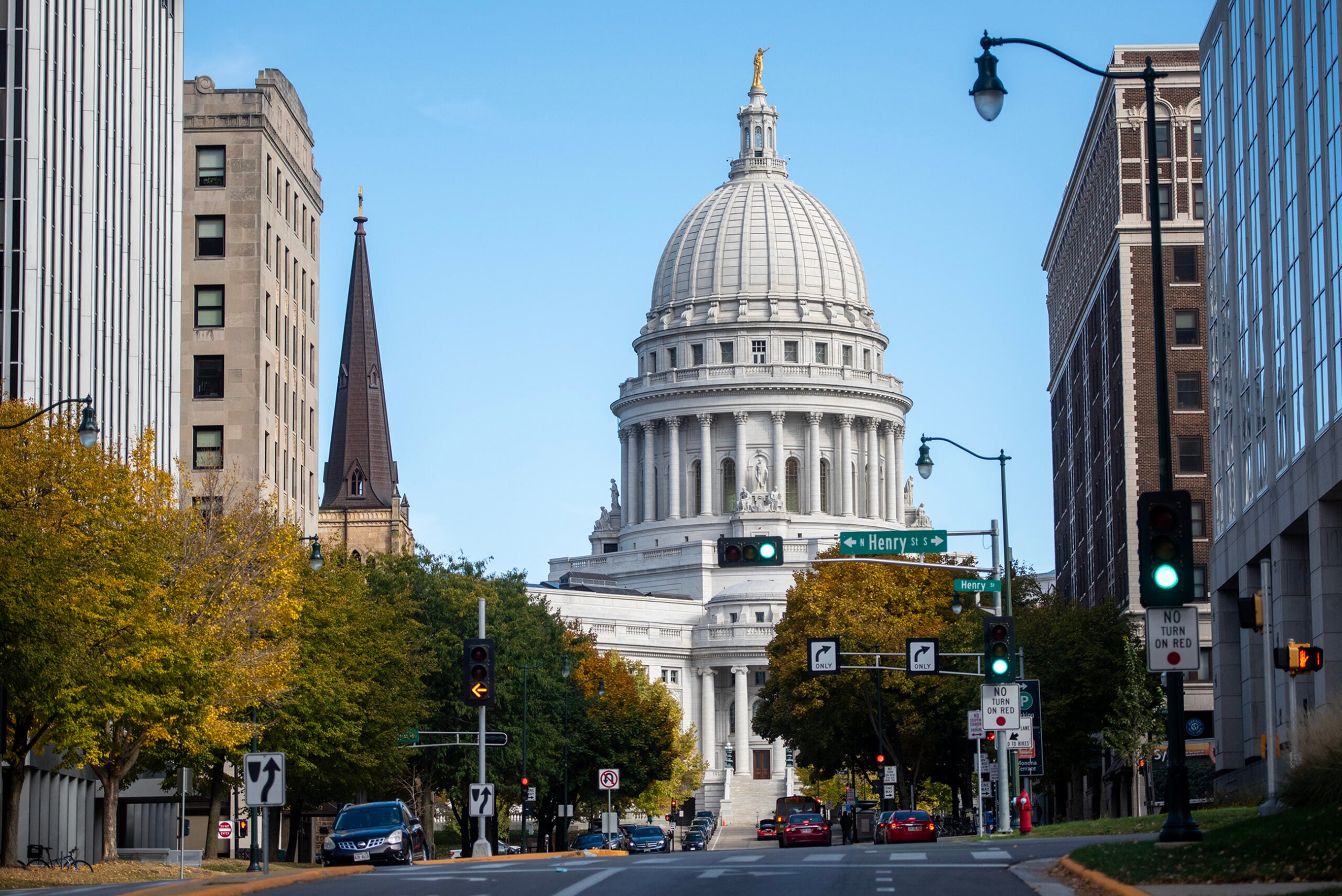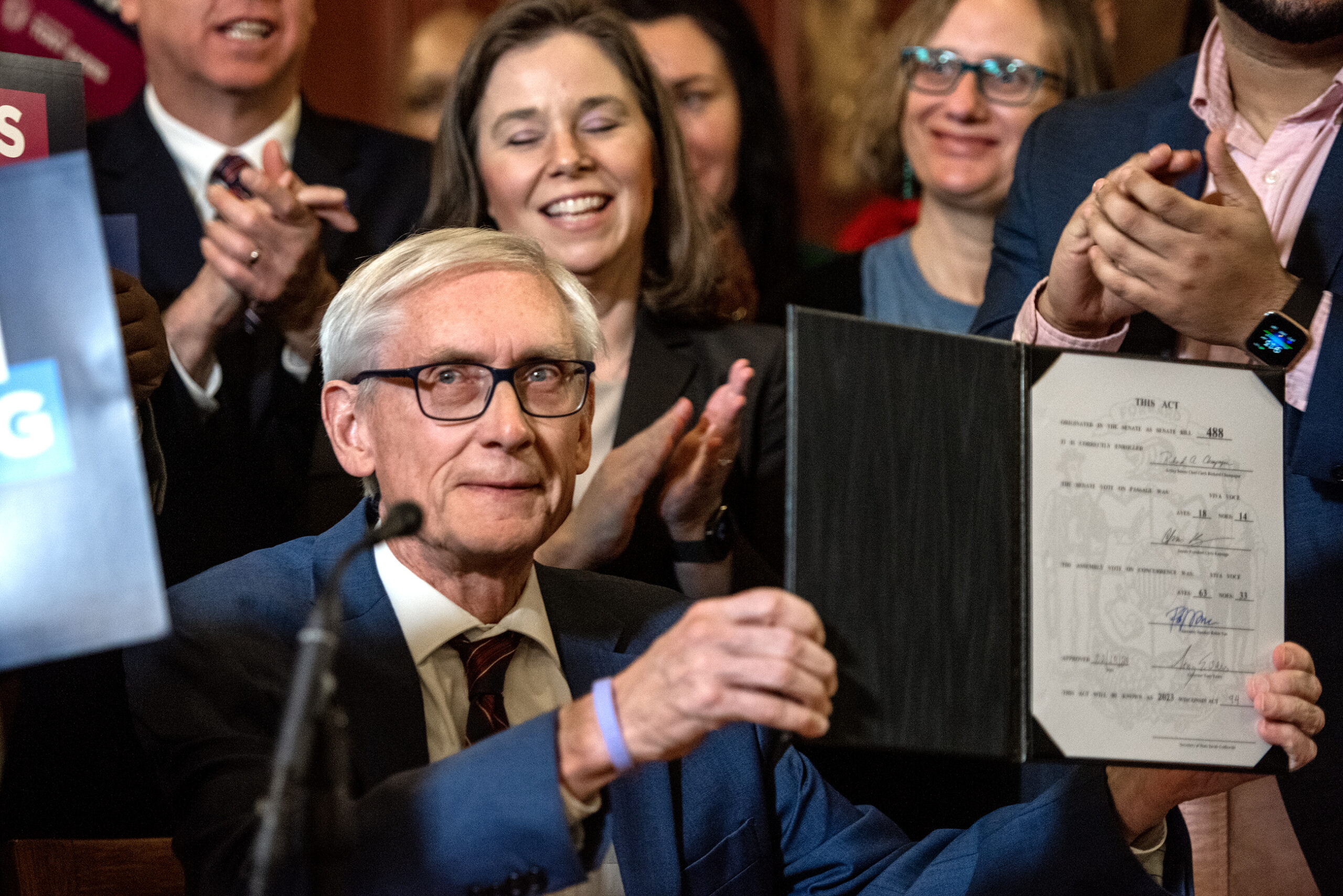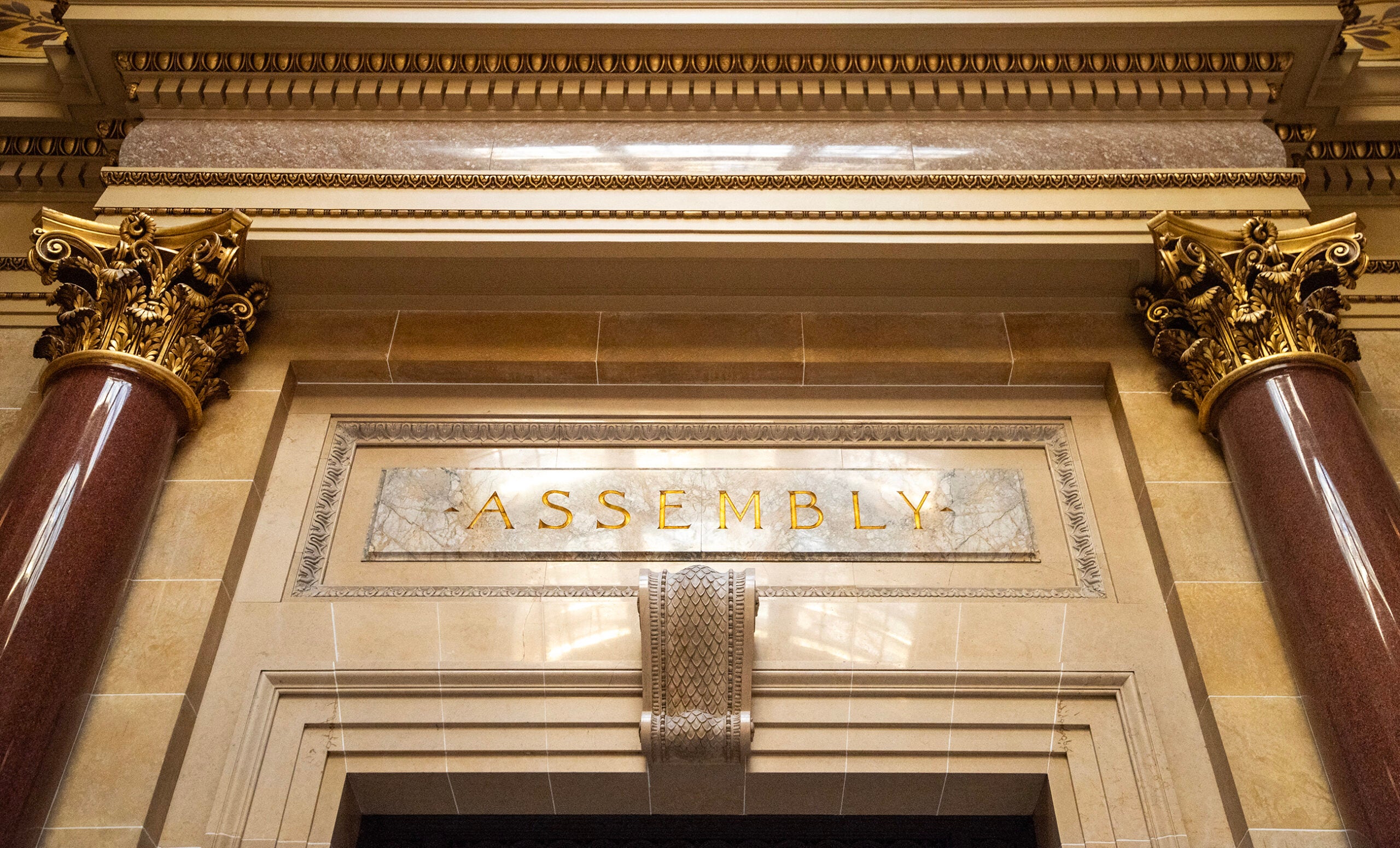State Assembly lawmakers used what’s expected to be their final day of work in 2020 to approve a GOP-backed income tax cut and a package of bills aimed at helping Wisconsin dairy farmers.
The tax cut proposal, which passed the state Senate early Thursday morning, was approved by the Assembly on a vote of 65-34. Two Democrats, state Rep. Steve Doyle of Onalaska and Rep. Nick Milroy of South Range, joined all Assembly Republicans in voting in favor of the plan. The bill now moves to Gov. Tony Evers for his signature, but it faces an uncertain future with the governor. Evers has been critical of the proposal.
The plan would cost the state about $248 million annually and save Wisconsin income tax filers an average of $106 per year. In addition to increasing the standard income tax deduction for all types of filers, the proposal would use about $45 million annually to exempt some items from businesses’ personal property taxes and pay down about $100 million in state debt.
News with a little more humanity
WPR’s “Wisconsin Today” newsletter keeps you connected to the state you love without feeling overwhelmed. No paywall. No agenda. No corporate filter.
“We put together a package of what we think a broad swath of Wisconsin wants,” said Assembly Speaker Robin Vos, R-Rochester, before Thursday’s vote. “There is nothing in there that should be partisan.”
Evers has argued the funds that would be directed to the tax cut should instead be used for education spending and a property tax cut.
“I know there are Republicans concerned about the high price tag of their own unsustainable tax bill that shortchanges our rainy day fund,” Evers tweeted on Wednesday evening. “My plan invests in our kids and property tax relief. There’s still time to do the right thing.”
During debate, Democrats argued in favor of the governor’s proposal.
“Our kids, our schools and our taxpayers need this support and they need it right now,” said Rep. Lisa Subeck, D-Madison.
But Vos said he is optimistic the governor will sign the bill.
“I don’t accept the fact that he won’t sign it because there’s no good reason not to,” Vos said.
RELATED: Republicans Move Ahead With ‘Tougher On Crime’ Bills, Delay Vote On Tax Cut
Approved Bills Would Help Wisconsin Dairy Farmers
The dairy proposals were spurred by Evers calling a special session of the Legislature to address the industry’s ongoing struggles during his annual State of the State address in January.
Evers and Democratic lawmakers introduced a package of bills shortly after the governor’s call, but the GOP-controlled Legislature only took up two of those plans. They also made some changes to both bills.
The first of the bills would require the Wisconsin Economic Development Corp. (WEDC) to partner with the state Department of Agriculture, Trade and Consumer Protection’s Center for International Agribusiness Marketing to promote Wisconsin dairy exports. The partnership would be tasked with increasing dairy product exports so that Wisconsin’s milk exports equal at least 20 percent of the nation’s milk supply by 2026 and increasing Wisconsin’s meat and crop product exports by 2026.
The plan would create one new job at the center to support those efforts. It passed on a vote of 99-0.
The second bill would set aside $600,000 per year on dairy processor grants. It also passed on a vote of 99-0.
Four dairy-related bills Republicans introduced after the governor’s special session call were also approved on Thursday.
One of those bills would create a new refundable tax credit to offset property taxes farmers pay on agricultural buildings. That proposal, which would cost the state an estimated $27 million per year, would sunset after the 2022 tax year. It passed on a vote of 99-0.
Another would let more farmers deduct the cost of their health insurance on their income tax bills. The state Department of Revenue estimates that would cost the state more than $9 million per year. That bill passed on a unanimous voice vote.
Two other bills would require the University of Wisconsin System to study problems facing farmers and evaluate how the university, through existing curriculum and programs, supports the industry, and require UW-Madison to conduct a study on developing a science and technology program specific to agriculture. Both of those bills also passed on unanimous voice votes.
None of the dairy bills have been voted on yet in the state Senate.
RELATED: GOP Lawmakers Release Details Of Plan To Support Wisconsin Farmers
Another Veto Override Attempt Fails
Assembly lawmakers also made another failed attempt on Thursday to override one of Evers’ 78 partial vetoes of the state budget.
The override failed on a party line vote of 63-36. All Republican lawmakers voted in favor and all Democrats voted against. A successful veto override, which requires a two-thirds vote of the chamber, would have required at least three Democrats to join Republicans in support of overruling the Democratic governor.
The Assembly has made several other unsuccessful attempts at veto overrides since the budget was signed last year. Those include plans related to mental health care funding and nurse training requirements.
The veto under consideration Thursday removed a requirement in the budget that WEDC had to allocate at least $500,000 in each year of the 2019-21 biennium for fabrication laboratory grants. Fabrication laboratories, sometimes called “fab labs,” are workshops that can have a wide variety of mechanical and digital tools for building and engineering projects. A number of schools across Wisconsin have built such labs in recent years.
The governor said he vetoed the proposal because he objected to putting such a requirement on WEDC.
“The fabrication laboratories program has been an innovative effort to expand the educational experiences of public school children across the state, but this is a policy more appropriately administered with other educational grant programs,” the governor wrote. “If the corporation wishes to make such an allocation, it can choose to do so on its own volition.”
Other Proposals Up For Votes
Other bills under consideration Thursday would:
- Allow bars in 14 Wisconsin counties to stay open until 4 a.m. during the Democratic National Convention in Milwaukee in July. The bill passed on a vote of 85-12. It has yet to be voted on in the state Senate.
- Raise the minimum age to buy tobacco products in Wisconsin to 21. The bill passed on a unanimous voice vote; it has yet to be voted on in the Senate.
- Require foods labeled as cheese, yogurt or other dairy products to be made with milk from a cow or another hoofed mammal. Another, similar bill would apply the same standards to products labeled as milk, but only if 10 other states pass similar legislation by 2031. Both bills passed on unanimous voice votes. Neither have been voted on in the state Senate.
- Require Wisconsin elementary schools to include cursive writing in their curricula. The bill passed on a unanimous voice vote; it has yet to be voted on in the Senate.
- Increase pay for public defenders in Wisconsin. The bill passed on a 99-0 vote. It now moves to Evers’ desk for his signature.
- Set standards for how law enforcement use body cameras and what footage should be publicly available. The plan was approved on a unanimous voice vote. It now moves to Evers’ desk for his signature.
- Provide more state funding to a UW-Madison program aimed at identifying and recovering the bodies of Wisconsin soldiers declared missing in action. The plan passed on a 98-0 vote. It now moves to Evers’ desk for his signature.
The Assembly isn’t expected to schedule any more work days in 2020, though their biennial schedule would allow the legislative session to run until mid-May. Many lawmakers will now turn their attention to the November election, when all 99 state Assembly seats will be on ballots across Wisconsin.
Wisconsin Public Radio, © Copyright 2025, Board of Regents of the University of Wisconsin System and Wisconsin Educational Communications Board.







